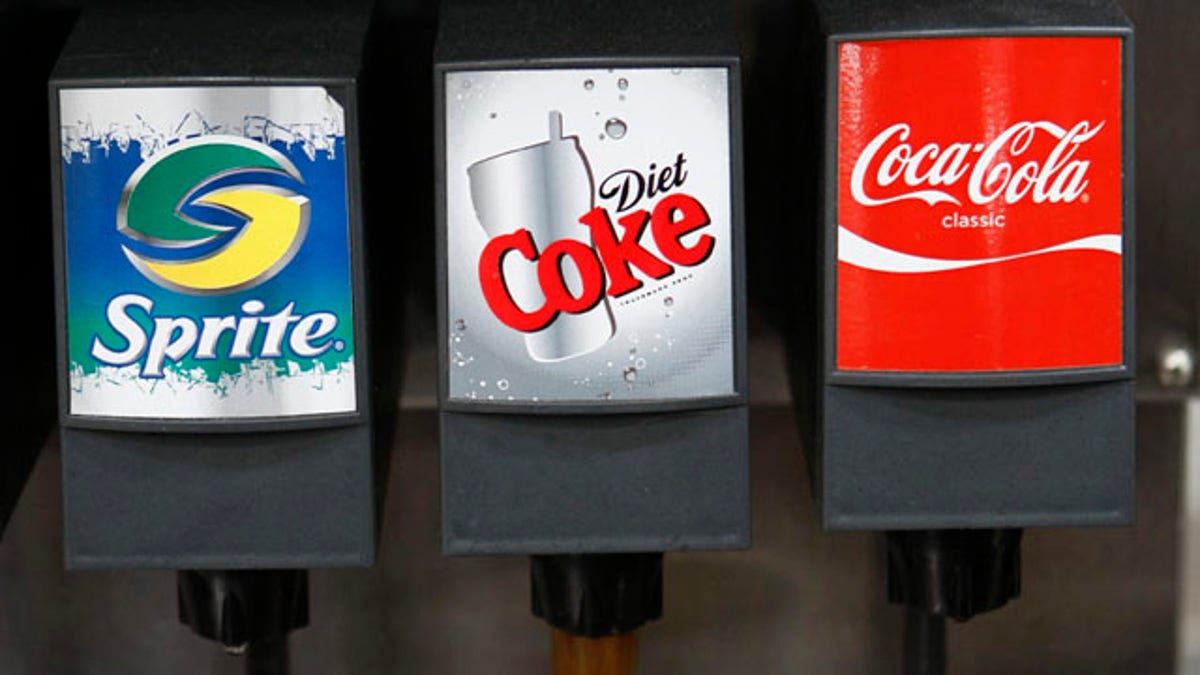
Boston aims to reduce consumption of sugar-sweetened sodas and other beverages. (AP) (AP)
Boston, the city that has already banned smoking in bars and trans-fats in restaurants, now wants to keep sugary drinks out of city-owned buildings.
The city has convened health, education, and housing leaders to develop a policy that aims to reduce consumption of sugar-sweetened sodas and other beverages.
Panel member Bill Walczak, head of a community health center, tells The Boston Globe that "somebody has to take a stand" to control the consumption of sugar-laden drinks blamed in part for the nation's obesity epidemic.
There are precedents: San Francisco’s mayor earlier this year issued an executive order banning sale of sugary drinks, and New York has imposed rules governing the mix of beverages in city vending machines to favor water.
This also comes as New York considers a ban on smoking in public parks and beaches.
In an interview with the Boston Globe, Barbara Ferrer, executive director of the Boston Public Health Commission, says expects resistance to an outright ban. She believes they are going to run into a big issue of people saying, ‘Why would you take away our sodas, why are you interfering with what we’re eating and drinking?’
Ferrer states, “Unlike tobacco that is always harmful and if a person is smoking in the workplace it harms other people, I think people will look at sugar-sweetened beverages differently."
This also comes as New York considers a ban on smoking in public parks and beaches.
Employees at City Hall were similarly reticent. The City Hall Deli on the eighth floor stocks a variety of soft drinks, as does the City Hall Coffee Stop in the bowels of the building.
“I think everything has its place,’’ said the manager of the Coffee Stop, John Moreira. “We’ve got healthy and we’ve got junk.’’
The coolers there offer bureaucrats an array of choices: V8 and Diet Coke, Nesquik and apple juice, full-sugar sodas and designer iced tea.
A spokesman for a national soft drink organization called a ban an "overly simplistic" way to fight obesity.
The Associated Press contributed to this report.





















